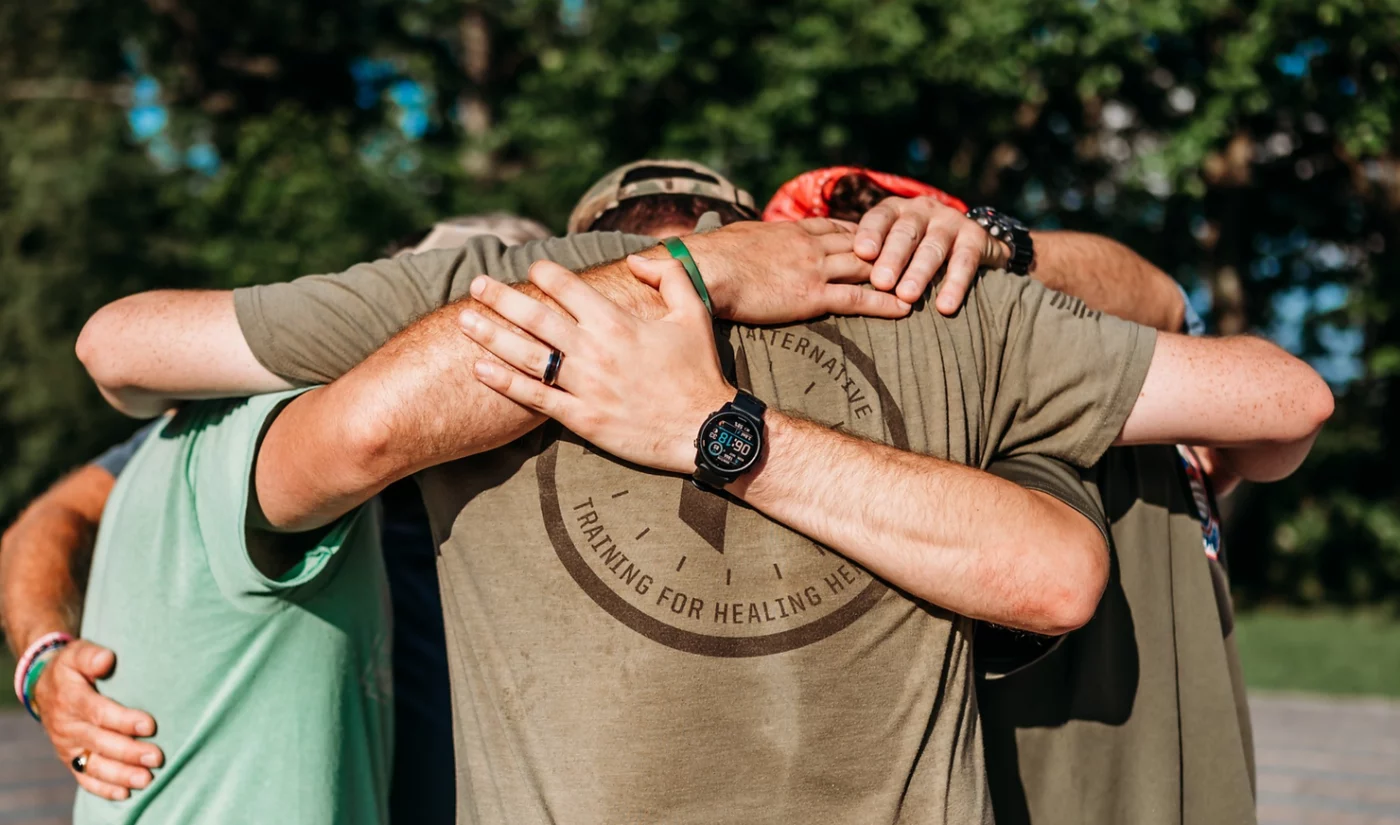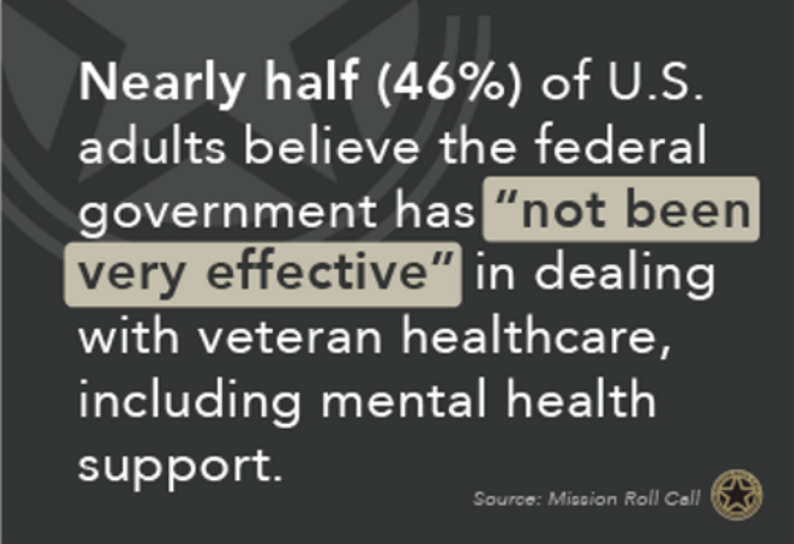What You Need To Know About Post-Traumatic Stress Awareness Month

What You Need To Know About Post-Traumatic Stress Awareness Month
June marks Post-Traumatic Stress Awareness Month, a crucial time to acknowledge the challenges faced by those who have experienced trauma and to advocate for their mental health and well-being. At Mission Roll Call, our commitment to supporting veterans and their families is unwavering, and this month serves as a poignant reminder of the invisible wounds that can be carried within our community.
Some, including Mission Roll Call, prefer using the term PTS instead of PTSD to reduce the stigma associated with the word “disorder” and to challenge the stereotype of “broken veterans.” Therefore, PTS will be used throughout the rest of this article (and in all MRC messaging) to promote a more understanding and supportive narrative.
Post-Traumatic Stress (PTS) vs. Post-Traumatic Stress Disorder (PTSD)
Post-Traumatic Stress (PTS) affects millions of individuals, including veterans who have served our country with bravery and dedication. The transition from military to civilian life can often exacerbate these struggles, making it imperative that we come together to provide understanding, resources, and support.
PTS has often been conflated with Post-Traumatic Stress Disorder (PTSD), but it’s crucial to distinguish between the two. PTS is a natural and sometimes adaptive response to trauma, not a mental illness.
Many people, including civilians, experience PTS after extremely stressful events, such as sports accidents, falls, or more severe incidents like war or assaults. Unlike PTSD, PTS is not chronic, and individuals typically find relief in the short term.
In contrast, PTSD is a medically diagnosed condition requiring clinical treatment. Symptoms can be chronic, lasting a year or more, and necessitating ongoing medical attention. PTSD symptoms often appear within a month of the traumatic event and, while similar to those of PTS (such as flashbacks, nightmares, and a racing heart), are more intense and enduring.
While PTS is a psychological injury that can affect anyone who experiences trauma, veterans are more susceptible to developing PTS compared to non-veterans. The VA estimates that at least seven out of every 100 veterans will experience PTS at some point in their lives.
Combat experience, in particular, can heighten sensitivity to loud noises or bright lights, trigger insomnia and other sleep disturbances, and make everyday situations feel more stressful than before.
Moreover, veterans often encounter distinct barriers to accessing adequate mental health treatment. Research shows that less than half of veterans needing mental health services receive treatment, and among those who do seek help for PTS and major depression, less than one-third receive evidence-based care.
These statistics underscore the need for comprehensive mental health care that adopts a holistic approach to veterans’ needs.
Ways To Support Veterans and Their Families
In 2022, Mission Roll Call conducted an annual research survey on Americans’ attitudes toward veterans’ issues and found that 60% believe veterans experience post-traumatic stress (PTS) significantly more than their civilian counterparts.
Additionally, nearly half (46%) of U.S. adults think the federal government has been “not very effective” in handling veteran healthcare, including mental health support. This indicates a substantial opportunity for individuals to support our nation’s veterans, especially those dealing with PTS.

So what can we do to help? For starters, we can assist veterans in accessing helpful resources and information on healthcare benefits they may be eligible for. It’s a big reason why June is dedicated to PTS awareness.
If you know a veteran showing symptoms of PTS, consider the following actions:
- Educate Yourself: Learn about PTS and its effects. Understanding the condition can help you better support your loved one or friend.
- Encourage Professional Help: Suggest they speak to healthcare providers who specialize in veterans’ needs and help them find a therapist if recommended.
- Engage in Physical Activities: Participate in physical activities with them. Consistent exercise, like jogging, walking, or biking, can improve mental health.
- Offer Support: Provide a listening ear and let them know you are there if they need to talk about their experiences.
- Connect with Peers: Help them connect with other veterans in similar situations through online forums, Facebook groups, or nonprofit organizations having an impact in the space.
Later this month, MRC will share more details about one of those organizations that may be able to help, a nonprofit called Boulder Crest Foundation.
At the heart of Boulder Crest’s mission is the Warrior PATHH (Progressive and Alternative Training for Healing Heroes) program. This program is designed to transform the way veterans and first responders think about and respond to their traumatic experiences. Instead of viewing PTS as a disorder, Boulder Crest promotes the concept of Post-Traumatic Growth (PTG), helping individuals harness their trauma as a catalyst for personal development and resilience.
Boulder Crest Foundation Warrior PATHH participants
Supporting veterans and their families as they navigate the challenges of post-traumatic stress (PTS) is a collective responsibility that requires empathy, awareness, and action.
Education is the foundation of effective support. By learning about PTS and the available resources, we can better assist veterans in accessing the care they need. Practical help, such as guiding them through healthcare systems and connecting them with veteran-focused organizations, can alleviate some of the logistical burdens they may face.
Emotional support is equally crucial. Being there to listen, encouraging open communication, and offering reassurance can make a significant difference in a veteran’s journey toward recovery. Building strong, supportive relationships and fostering a sense of community can mitigate feelings of isolation and promote mental well-being.
Advocacy and awareness are powerful tools in the fight against the stigma surrounding PTS. By raising awareness, advocating for better services, and volunteering with veteran-serving organizations, we can contribute to systemic changes that benefit veterans and their families.
Ultimately, creating a supportive environment where veterans feel understood and valued is essential. Encouraging self-care, respecting their boundaries, and involving their families in the healing process can lead to more comprehensive and sustained recovery.
Join us this June as we amplify the voices of those impacted by PTS, share their stories, and highlight the resources available to aid in their recovery. Together, we can foster a community of compassion and resilience, honoring the sacrifices made by our veterans and their families and ensuring they receive the care they deserve.
Are you a member of the Mission Roll Call community? If not, please subscribe and join our polls to let your voice be heard, and follow us on Facebook, Instagram, and LinkedIn for the latest news and updates.